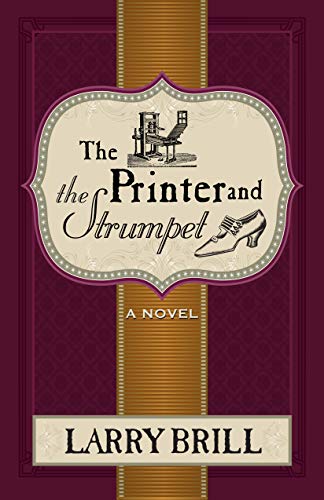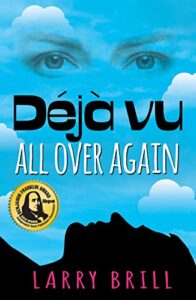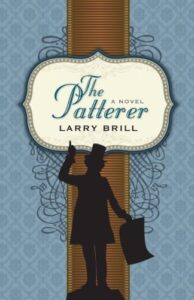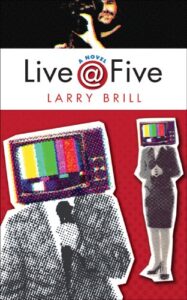The Printer and The Strumpet received a 4+ star review, making it an IndieReader Approved title.
Following find an interview with author Larry Brill.
What is the name of the book and when was it published?
The title is The Printer and The Strumpet. Publication date February 1, 2021.
What’s the book’s first line?
It was the best of times; it was the worst of times. It was an age of reason when….
(The story opens with a joke–our hero is sitting in a pub in 1773 Boston trying to write a political pamphlet. He writes that line and then tears it up as totally worthless prose and berates himself and anyone who would produce such trash as a lousy wordsmith—but admits he’s having a dickens of a time writing anything better. — 85 years before before Charles Dickens wrote that in Tale of Two cities)
What’s the book about? Give us the “pitch”.
A conservative, English-born newspaperman and a radicalized American prostitute combine their unique skills to uncover and publish reports of government graft and British military secrets in 1773 Boston as the colonies and the crown inch closer to revolution. They spend the period from the Boston Tea Party to the battle in Lexington dealing with the same media issues that we see today like hyper-partisan news outlets more intent on creating anger with fake news and alternate facts than reporting the truth—all the while they have to dodge military police and spies who want to hang the pair for treason. But when they fall in love, the bigger battle may be whether they can keep from strangling each other over their political differences before the shooting starts.
What inspired you to write the book? A particular person? An event?
The Printer and The Strumpet is the second novel in what I suspect will be the Misadventures of Leeds Merriweather series. The first book The Patterer was published several years ago. It got great reviews, better than I could have hoped for, and so I decided to pick up the story again. I spent most of my adult life as a TV news anchor and I came up with a whimsical idea wondering what would happen if Ben Franklin invented the TV newscast in 1765 London. In the first book, Leeds is a patterer, a street corner news reader who leverages his oratorical skills into becoming the world’s first celebrity news “caster.” This second book follows Leeds as he moves to America in time to report on the revolution.
What’s the main reason someone should really read this book?
It’s just plain fun. Although it’s set in the 18th century, it’s a satire loaded with funny references to pop culture, social media, and issues afflicting the news business today.
What’s the most distinctive thing about the main character?
Leeds Merriweather is conflicted and tries his best to be an objective reporter of the times while everything around him screams that taking sides is the only way to survive.
Who-real or fictional-would you say the character reminds you of?
Leeds is a mash-up of a number of people I met in my time as a TV news anchor, from Peter Jennings and Katie Couric, to a small town colleague who wore a really bad, really cheap wig and went out of his way to pretend nobody would notice. (We all did.)
If they made your book into a movie, who would you like to see play the main character(s)?
Ryan Gosling as Leeds as the printer, and Amy Adams as Sally the strumpet.
When did you first decide to become an author?
I had toyed with writing fiction as a teenager, but didn’t get serious about it until I moved to Austin, Texas in the early ‘90s and fell in with a great, supportive group of wordsmiths.
Is this the first book you’ve written?
Nope. This is #4 on the list of Larry Brill’s greatest hits. Book #3 Deja Vu All Over Again won an Independent Book Publishers Association award for best fiction.
What do you do for work when you’re not writing?
I’m somewhat retired now, but I still produce marketing videos for a couple of clients when the need arises.
How much time do you generally spend on your writing?
When I’m deep into a project I’ll spend a couple of hours most days of the week and a full weekend, but I fall into huge, bottomless pits of sloth between projects where nothing gets done.
What’s the best and the hardest part of being an indie?
The best part is being able to write what makes me happy and not feeling the pressure to turn out books like widgets to meet traditional publisher deadlines. The worst is dealing the demands of marketing my books myself. And too many days that feel like all that work, and the tons of great reviews, aren’t helping enough to make a difference.
What’s a great piece of advice that you can share with fellow indie authors?
Get as much joy as you can from the writing process itself. The rest is gravy.
Would you go traditional if a publisher came calling? If so, why?
Yes. Traditional publishing opens doors that are still chained shut to indie authors, like media exposure and movie deals.
Is there something in particular that motivates you (fame? fortune?)
I know it sounds silly, or simplistic, but being happy motivates me. I write funny, feel-good fiction for my own sake as much as writing for an audience. (Though having J.K. Rowling-like sales would be nice too.)
Which writer, living or dead, do you most admire?
Easy. John Steinbeck. Nobel prize winner, yes, but I grew up in the coastal central California area that he wrote about and I discovered him as a kid at an age when I first got the itch to write.
Which book do you wish you could have written?
Who wouldn’t want to have written The Great Gatsby? But I’ll pick one of Steinbeck’s lesser known novels, Cannery Row.




